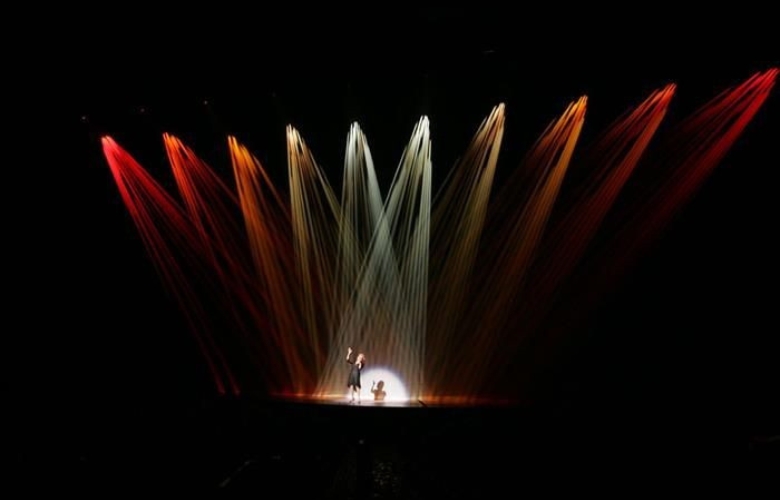How to Safely Stop the Show: A Look At Assessing Risk Before It Happens
In this week’s article, I’m discussing show stops and emergency situations. Sometimes things don’t go according to plan and the show cannot go on due to an artist injury, a technical issue, or unforeseen circumstances that could be out of your control. We can prepare for these situations and make plans for how our team can be a conduit for information.
Although we’ve heard the saying “the show must go on,” there will be times when you must stop a show for a variety of reasons. The most common reasons are technical malfunctions and human error, but emergency situations can occur, perhaps with a performer onstage or with an audience member, and, in rare cases, other factors that are completely out of our control, such as weather. These are some steps you can take to ensure that stopping a show goes smoothly and safely.
Safety is one of the most important aspects of being a Stage Manager in any context, and there are steps we can take to ensure safety is always at the forefront of how we approach leading a production.
Risk Assessment is one of the most effective ways we can prevent issues during a performance and respond to emergencies. Before they occur, we can first assess what types of risks (small and big) there are, how severe these risks are, and the appropriate responses for each level of severity.
Here are some tips for assessing risk:
- Assess the best exit pathways, make sure they are marked, and let everyone know what the best exits are for emergencies. Make sure there are designated pathways that do not ever become blocked so that when an emergency occurs, they are clear.
- Locate where the nearest fire extinguishers are. Ensure there are enough of them around the building that are accessible, and that they are up to date.
- Identify where the emergency services are coming if they are called, how are they coming into the building, and what needs to be passed off to them.
- Identify what possible events that could happen in the building during operations, both in show conditions and outside of show conditions, from small to large—anything from a minor first aid incident to a severe injury. Form your responses and protocols around communication and action.
- Discuss with your team different weather events, or other events that might be outside of your control. These might include thunderstorms, tornados, power outages, hurricanes, earthquakes, floods, active shooters, bomb threats, or terrorist attacks.
Emergency scenarios are likely to occur when you are dealing with high-risk events such as acrobatics and highly technical aspects of a show, such as automated scenery and flying performers. As a result, there might be times when we must stop the show due to a technical issue, an injury, or something outside of your control.
Here are some tips for responding to a technical issue or emergency:
- When assessing risks, you should discuss how the show should stop and specifically detail what each department does in the event of needing to stop the show. Communicate about these protocols in great detail so that, when a technical issue occurs or an emergency situation arises, the team is familiar with them and ready to act.
- Lay out a plan ahead of time. Write it down and get everyone’s feedback about it so that the entire team agrees with the order of operations. Send it to the entire team so they can reference it anytime.
- Rehearse emergency scenarios and what might happen in a low-stakes situation without a live audience and without a real-life injury. Make up a fake scenario and go through what each department needs to do and learn as a group.
- Ask for help when you need it. We can’t do everything on our own, and if you need help understanding what you need to do or when you can’t do something on your own, ask for help. When we work together, we can be more productive and safer.
Prevent more injury when an emergency occurs. While we want to care for whoever might be injured, it’s important to ensure that no one else becomes injured as a result of the chaos that can occur.
Here are some ways to prevent more injury during an emergency:
- Unexpected events happen, and we are unable to control all aspects of an emergency situation when it occurs. Put up safety measures that will help keep unexpected events from happening and remove the risk of further injury. For example, two potential solutions for preventing more injuries include removing all other artists from the injured artist or evacuating the audience.
- Learn from new events that have not been accounted for and lay out new responses for how to approach any emergencies that come up. There are times when something happens that has never occurred prior and we have to respond in the moment with our best judgement. Take notes and follow up with your team about how to improve so that next time, there can be better action and communication.
- Be open to changing outdated or ineffective practices to problems. A new and better solution might come to light. Be open to hearing new perspectives that can improve safety.
Conclusion
When we have a plan for how to respond to show-stopping situations, we can be more prepared and ready to respond quickly. It’s important to keep safety as the top priority. Next week, I’ll be discussing more on how to stop the show with some standard practices that can be implemented to create an environment where everyone feels safe.
This article was originally published on TheatreArtLife.com. Written by TheatreArtLife contributor Bryan Runion.
...Do you have a story to share? Submit your news story, article or press release.






